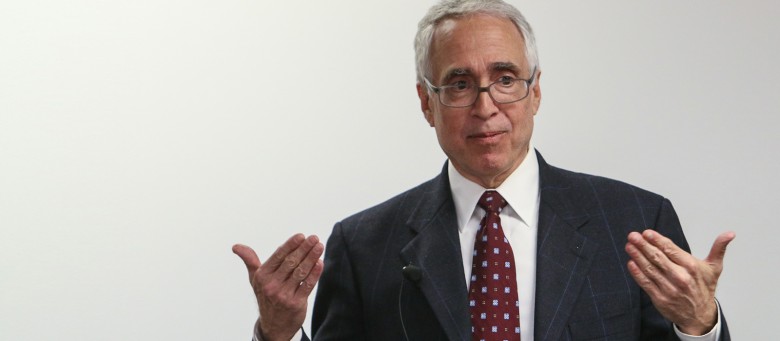Visiting Catalyst Paul Light
This week visiting catalyst Paul Light, NYU Wagner’s Paulette Goddard Professor of Public Service and founding principal investigator of the Global Center for Public Service, meets with the Catalyzing Newport steering committee to explore how the humanities sector innovates.
Rhode Island is a heritage rich state, but can we support the infrastructure?
In the wake of the 2008 economic collapse, innovation is necessary across the nonprofit sector. Arts and cultural nonprofits nationwide have yet to recover from the drastic cuts experienced during the recession. With 464 history and heritage sites in Rhode Island, according to the Rhode Island Historical Society’s RHODI report, and 27 of these in Newport County, Catalyzing Newport seeks to identify collaborative approaches to respond to the economic climate.
Who defines the future?
In an article originally published in the Nonprofit Quarterly in 2008, Paul Light posed important questions about the nonprofit sector’s preparedness: Are nonprofits “owned” by their institutional funders (governmental and philanthropic) or are they governed by a broader community of stakeholders? Who will help them make fundamental decisions about their future?
Dr. Light went on to project a vision for what would happen to the nonprofit sector, proposing Four Futures of Nonprofits:
- The Rescue Fantasy – “bail out” model where individual benefactors rise up to make up the difference in revenues from government and philanthropic cutbacks. Some nonprofits succeed while others (i.e., less fundable) fail.
- A Withering Winterland – everyone suffers and nonprofits are starved into a weakened organizational state through layoffs, pay freezes, hiring freezes, etc.
- An Arbitrary Winnowing – results in rebalancing the sector toward larger, richer, and fewer organizations.
- Transformation – nonprofits use this time to reinvent themselves and innovate.
How do we get from the quagmire of constrained resources to transformation?
Despite what you may think of Dr. Light’s predictions, it is clear that the sector is in disruption, and frankly, seven years after the collapse, it is still in trouble. Hiring freezes, “more for less,” and merged job responsibilities are rampant among the sector. Newport exists in a national context where governmental, philanthropic, and corporate funding cuts have not been fully restored to pre-2008 levels, particularly among “second-tier” cities and especially within the arts and cultural sector. Foundations and individual donors are responding to loss of endowments by re-strategizing their priorities and giving.
With no relief from Rhode Island’s economic hardships, its nonprofit organizations are forced to continue to tighten their belts and look inward, making necessities like professional development and “Google Friday time” impossible luxuries for most.
How can we train our staffs for the skills needed to propel our organizations into the future?
How can we learn from colleagues creating innovative models across the nation and world when we can not afford to send our staff to conferences or have them away from their desks for a week?
How can we nurture and support innovative ideas from our staff members and retain talent?
These questions resonate for many of us working in the sector.
Dr. Light’s four scenarios hit home, and they deserve more than a rhetorical answer. Catalyzing Newport posits that collaboration is necessary to move forward from this quagmire and into a place of transformation. Finding time to learn from one another and to address our shared challenges together will create more opportunities for all. We invite all those who wish to be a part of the solution to join us on this journey of discovery towards new forms of innovation.

